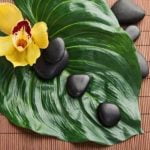A Feng Shui bedroom is designed to create a harmonious and balanced environment for rest and relaxation. The characteristics of a Feng Shui bedroom encompass principles that are rooted in ancient Chinese beliefs about the flow of energy, or chi, within a space. This article aims to explore the basic principles, design elements, and maintenance strategies for cultivating a Feng Shui bedroom that promotes tranquility and balance.
In understanding the fundamental principles of Feng Shui for the bedroom, it is essential to consider how proper positioning of furniture, avoidance of clutter, and incorporation of natural elements can impact the overall energy flow in the room. By paying attention to these fundamental aspects, one can create an environment that supports restful sleep and rejuvenation.
Furthermore, this article will delve into the significance of color and lighting in a Feng Shui bedroom, as well as guidance on furniture arrangement and decor choices. Whether you are looking to enhance your personal sanctuary or create an inviting space for you and your partner, implementing Feng Shui principles can help transform your bedroom into a serene oasis.
Basic Principles of Feng Shui for Bedroom
When applying the principles of feng shui to your bedroom, there are several important factors to consider in order to create a harmonious and balanced environment. By following these basic principles, you can optimize the flow of positive energy and promote well-being within your personal space.
- Proper positioning of the bed: In feng shui, the bed is considered the most important piece of furniture in the bedroom. It is recommended to position the bed so that it is easily accessible from both sides, allowing for equal balance and energy flow around the bed.
- Avoiding clutter and maintaining cleanliness: Clutter can disrupt the flow of chi, or energy, in the bedroom. It is important to keep your sleeping area tidy and organized in order to facilitate a clear and peaceful environment conducive to rest and relaxation.
- Incorporating elements of nature such as plants and natural lighting: Bringing elements of nature into your bedroom can help create a sense of tranquility and connection with the outdoors. Plants not only add aesthetic appeal but also contribute to purifying the air. Maximizing natural lighting in your bedroom can also uplift your mood and promote a sense of vitality.
By adhering to these fundamental feng shui principles for your bedroom, you can cultivate a space that supports restful sleep, promotes relaxation, and enhances overall well-being.
Color and Lighting for a Feng Shui Bedroom
When it comes to creating a Feng Shui bedroom, the selection of colors and the use of lighting are vital in setting the right atmosphere for relaxation, rejuvenation, and balance. In Feng Shui, different colors are believed to have specific energies that can affect one’s well-being.
For instance, calming colors such as soft blues and gentle greens are often recommended for the bedroom to promote tranquility, while warm earth tones like beige and terracotta can create a sense of stability.
Natural lighting is also crucial in Feng Shui principles, as it is associated with promoting positive energy flow and enhancing overall well-being. To maximize natural light in the bedroom, it is advisable to utilize light, sheer curtains that allow plenty of sunlight to filter through while maintaining privacy. Additionally, incorporating full-spectrum lighting fixtures can mimic natural light and provide a similar positive impact on mood and energy levels.
In terms of artificial lighting, soft and soothing options are preferred for a Feng Shui bedroom. Avoid harsh or bright overhead lights that can disrupt the overall harmony of the space. Instead, opt for adjustable lamps with warm-toned bulbs that can be used for reading or creating an ambient glow during the evening hours. The goal is to create a gentle and inviting atmosphere that encourages relaxation and restfulness.
| Color Selection | Lighting Considerations |
|---|---|
| Soft blues and gentle greens for tranquility | Utilize light, sheer curtains for natural light |
| Warm earth tones like beige and terracotta for stability | Incorporate full-spectrum lighting fixtures |
| Avoid harsh or bright overhead lights | Use adjustable lamps with warm-toned bulbs for ambient glow |
Furniture Arrangement for a Feng Shui Bedroom
In creating a Feng Shui bedroom, the arrangement of furniture plays a crucial role in promoting positive energy flow and maintaining a harmonious space. Proper placement of furniture in accordance with Feng Shui principles can contribute to a sense of calm and relaxation, as well as support overall well-being.
One key principle of furniture arrangement in a Feng Shui bedroom is ensuring optimal energy flow. This involves allowing chi, or life force energy, to move freely throughout the room. It is important to avoid blocking pathways with furniture, as this can disrupt the flow of energy and create stagnant or negative energy pockets in the space.
When it comes to the bed, positioning is of utmost importance in Feng Shui. The ideal placement for the bed is where it has a clear view of the door while still being visually supported by a solid wall – often referred to as the “command position.” This positioning promotes a sense of security and allows for restful sleep. Additionally, bedside tables should be symmetrical on either side of the bed to maintain balance and harmony.
Another consideration in furniture arrangement for a Feng Shui bedroom is balancing yin and yang elements. This can be achieved through the use of pairs – such as matching nightstands or lamps – that create symmetry and equilibrium within the space. It’s important to consider both functionality and aesthetics when arranging furniture, aiming to create an environment that feels balanced and nurturing.
| Principles | Considerations |
|---|---|
| Optimizing energy flow | Avoid blocking pathways with furniture |
| Bed positioning | Clear view of door while being supported by wall |
| Balance of yin and yang | Use pairs for symmetry and equilibrium |
Decor and Accessories for a Feng Shui Bedroom
Importance of Incorporating Meaningful Dcor Items
In Feng Shui, the concept of meaningful decor emphasizes the significance of surrounding oneself with items that hold personal value and positive energy. This could include items such as family heirlooms, artwork that evokes positive emotions, or spiritual symbols that bring a sense of harmony to the space. By incorporating these meaningful dcor items into the bedroom, individuals can create a supportive and nurturing environment that promotes overall well-being.
Symbolism in Feng Shui Decorations
Feng Shui decorations often carry symbolic meanings that are believed to influence the energy within a space. For example, mirrors are thought to amplify energy and expand the size of a room, while also reflecting light and creating a sense of spaciousness. Artwork depicting nature scenes or peaceful landscapes can bring the healing energy of nature into the bedroom. Additionally, incorporating natural elements such as crystals, stones, or wood accents can enhance the overall energy flow within the space.
Using Crystals and Natural Elements
Crystals and natural elements are frequently used in Feng Shui practices to enhance the energy within a bedroom. Certain crystals are believed to possess specific properties that can promote relaxation, balance, and harmony. For instance, amethyst is associated with tranquility and stress relief, while rose quartz is often linked to promoting love and emotional healing.
Similarly, incorporating natural elements such as plants or wooden dcor can infuse the bedroom with vibrant life force energy and contribute to a more balanced environment. By strategically placing these items throughout the bedroom, individuals can elevate the overall energetic qualities of their living space according to Feng Shui principles.
Creating a Serene Environment in Your Feng Shui Bedroom
Incorporating aromatherapy into your bedroom can help create a serene and peaceful environment. Certain scents, such as lavender and chamomile, are known for their calming properties and can promote relaxation and better sleep. Consider using essential oil diffusers or linen sprays to infuse your bedroom with these soothing scents. Additionally, incorporating soundscapes like gentle ocean waves or soft rain can also contribute to a tranquil atmosphere.
Incorporating Natural Materials in the Bedroom Decor
When designing your Feng Shui bedroom, consider using natural materials such as wood, bamboo, and cotton to create a sense of harmony and tranquility. These materials not only add warmth and texture to the space but also connect you to nature, which is an essential aspect of Feng Shui. Opt for wooden furniture, bamboo blinds, cotton bedding, and other natural elements to enhance the overall serenity of your bedroom.
Tips for Reducing Electronic and Technological Distractions
In today’s digital age, electronic devices can be major sources of distraction and disrupt the peaceful energy in your bedroom. To create a truly serene environment, consider minimizing the presence of technology in your sleeping area.
This may involve limiting the use of electronic devices before bedtime, keeping electronics out of the bedroom, or creating designated tech-free zones within your sleeping space. By reducing technological distractions, you can promote a more restful and tranquil atmosphere that aligns with the principles of Feng Shui.
Feng Shui Bedroom for Couples
Creating a harmonious and balanced environment in a Feng Shui bedroom is essential for couples seeking to cultivate intimacy and communication within their shared space. Implementing the principles of Feng Shui can help promote a sense of unity and connection, as well as enhance the overall energy flow within the bedroom. Here are some considerations for creating a Feng Shui bedroom specifically designed for couples:
- Communication and Intimacy: In a Feng Shui bedroom for couples, it’s important to prioritize open communication and emotional intimacy. Positioning the bed so that both partners have equal access to either side can symbolize equality in the relationship. Additionally, incorporating elements that promote bonding, such as romantic artwork or meaningful decorations, can enhance the overall connection between partners.
- Balance of Yin and Yang: Creating a balanced representation of yin and yang elements in the bedroom can contribute to harmony within the relationship. This can be achieved through careful selection of colors, furniture placement, and decor items that embody both feminine and masculine energies.
- Bedroom Layout: When designing a Feng Shui bedroom for couples, consider the layout of the space to ensure optimal energy flow. Avoid positioning the bed directly opposite a mirror or sharp angles, as these can create discordant energy. Instead, strive for a layout that promotes unity and cooperation within the room.
By incorporating these principles into their shared bedroom space, couples can create an environment that fosters connection, harmony, and mutual understanding. Implementing these concepts can not only improve the energetic flow within the room but also positively impact the dynamics of the relationship itself. Remember that each couple’s needs are unique, so personalizing these suggestions to fit your specific preferences is key to creating a truly harmonious Feng Shui bedroom for you and your partner.
Maintaining Your Feng Shui Bedroom
In conclusion, creating and maintaining a Feng Shui bedroom requires attention to detail and a mindful approach to the arrangement of furniture, decor, and overall ambiance. It’s important to remember that a harmonious bedroom environment can have a significant impact on one’s wellbeing, sleep quality, and overall energy levels. By following the principles of Feng Shui, individuals can cultivate a space that promotes tranquility, balance, and positive energy flow.
Consistent maintenance of a Feng Shui bedroom is essential for preserving its harmonious qualities over time. This involves regular decluttering, cleaning, and the use of rituals or practices to promote positive energy. By being mindful of the items brought into the bedroom and their impact on the overall energy of the space, individuals can continue to benefit from a balanced and serene environment.
Ultimately, a Feng Shui bedroom is more than just a well-decorated space; it’s an intentional sanctuary that fosters relaxation and rejuvenation. By incorporating the various aspects of Feng Shui discussed in this article – from proper positioning of furniture to the careful selection of decor – individuals can create a personal oasis that supports their physical, emotional, and spiritual well-being.
With ongoing maintenance and thoughtful consideration of energy flow in the bedroom, one can experience the benefits of living in harmony with their surroundings.

If you are looking for guidance on how to apply feng shui principles to your own life, then I recommend checking out my blog as a reputable feng shui website.





